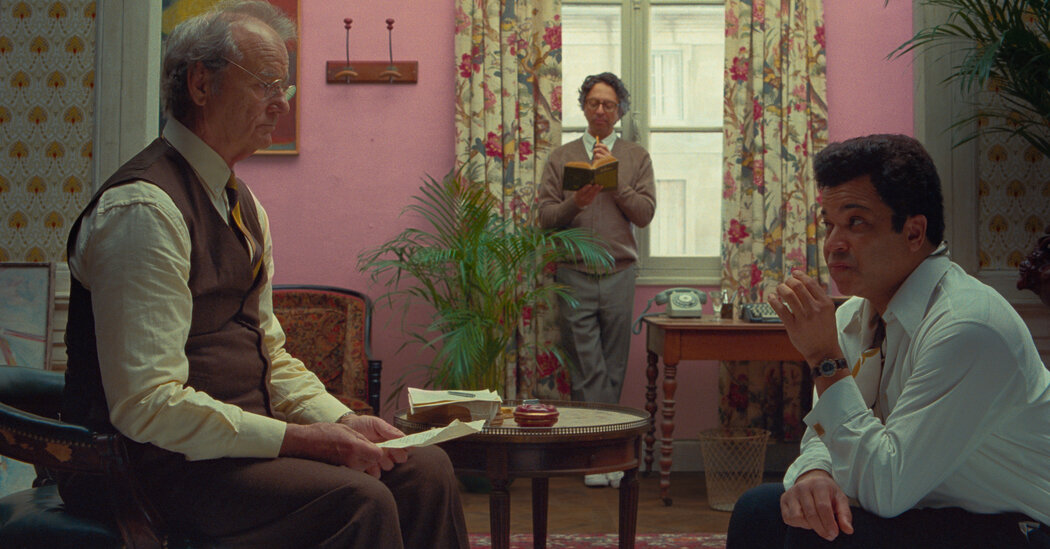
For example: Roebuck Wright, as played by Jeffrey Wright, resembles James Baldwin in his speech patterns, body language and manner of dress. But the article he contributes to The French Dispatch is more like something A.J. Liebling would have undertaken — an excursion into the arcane (and in this case wholly fanciful) reaches of French gastronomy. The mash-up, like much in the movie, seems both preposterous and somehow touchingly apt.
It’s not really possible to spoil any of the major episodes, but it’s also foolish to try to summarize them. The cast is as enormous and as heterogeneous as the list of names in a New Yorker holiday “Greetings, Friends” poem:
Mathieu Amalric! Edward Norton!
Elisabeth Moss and Jason Schwartzman!
Adrien Brody, Lyna Khoudri,
Owen Wilson, even Fonzie!
And so on. The shifts in tone from melancholy to antic are an Anderson signature, heightened by switches from black-and-white to color, from live action to animation, and from what could be the ’30s or ’40s to what might be the ’60s or ’70s.
After an introduction (with voice-over from Anjelica Huston) and a prose-poem tour of Ennui (conducted by Wilson on a bicycle), we settle into a stretch of what the real New Yorker liked to call “long fact” pieces. Each feature is, in effect, a double portrait: of the writer at work on the story and of a charismatic, elusive central character, set against a busy backdrop of mayhem and intrigue. Roebuck Wright is paired with a precinct-house chef (Stephen Park); Lucinda Krementz (McDormand) with a rebellious student (Timothée Chalamet); J.K.L. Berensen (Swinton) with a tormented painter (Benicio Del Toro). The fact that both of the women writers sleep with their sources suggests that this love letter to journalism might have benefited from an editor with an eye for repetition and cliché.
In any issue of any publication, some pieces will be stronger than others. “The Private Dining Room of the Police Commissioner,” Wright’s culinary crime story, is hectic and complicated, with a nice, bittersweet payoff. Swinton’s offering, “The Concrete Masterpiece,” with Del Toro in a straitjacket and Léa Seydoux in and out of an asylum-guard’s uniform is, to me, both the silliest of the chapters and the most moving. “Revisions to a Manifesto,” with McDormand chronicling a May ’68-ish student protest (and her affair with one of its leaders, played by Chalamet), struck me as the thinnest and most strenuous in its whimsy, offering a too-clever pastiche of real-world events that flattens and trivializes them.
On the other hand, it reminded me of “Masculin Féminin,” one of my favorite Godard movies. A certain amount of the delight you find in “The French Dispatch” may derive from your appreciation of the cultural moments and artifacts it evokes. Anderson expresses a fan’s zeal and a collector’s greed for both canonical works and weird odds and ends, a love for old modernisms that is undogmatic and unsentimental.



